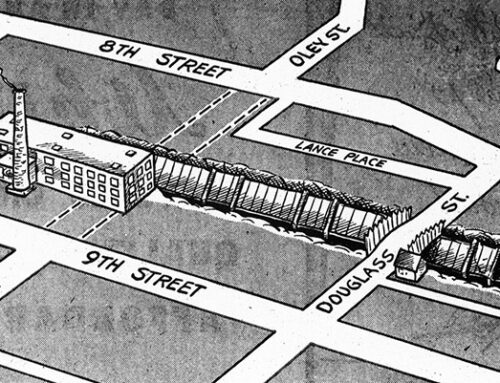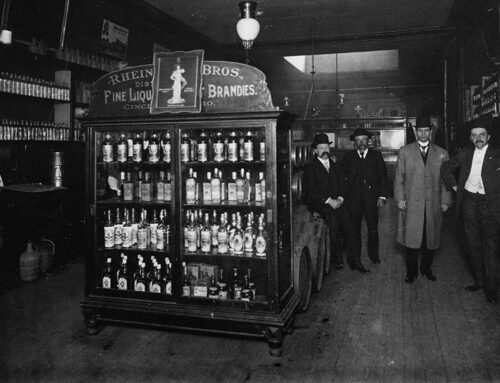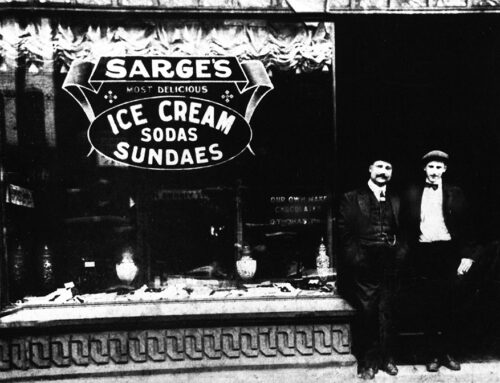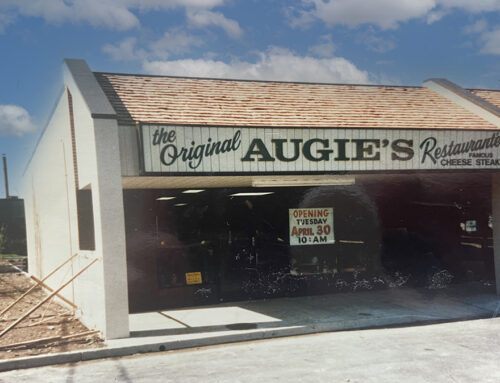The residences of the Muhlenberg brothers, Henry A. Muhlenberg, Jr. and Dr. Hiester H. Muhlenberg, at 401 and 403 Penn Street, were frequently referred to as “twin mansions.” The region’s expansion was significantly influenced by the Muhlenberg brothers, Hiester and Henry. Their residences, which were constructed during a period when Penn Street was a fashionable address, underwent substantial changes over time, reflecting the evolving architectural and commercial requirements of the region.
It was in the 1840s that Dr. Hiester H. Muhlenberg constructed the residence at 401 Penn Street. Dr. Hiester Muhlenberg, who ceased practicing medicine at the beginning of his career, became affiliated with Farmer’s Bank, located near 5th and Penn. In 1865, Dr. Muhlenberg sold the property to Fred Close, who subsequently sold it to Benjamin Saylor and his brother John in 1877.
B. & J. Saylor’s establishment was equipped with coffee mills and pulverizers, as well as coffee roasters that were propelled by steam and electric motors. A four-story addition was constructed at the rear of the property in 1900 to simplify manufacturing operations.
Below: 401-405 Penn Street, showing B. & J. Saylor at 401, Hoff & Brother at 403, and Central House Hotel at 405, circa World War 1.

In 1933, a fire devastated the rear half of the structure. An additional fire in 1935 resulted in the destruction of the building’s front. In the wake of this calamity, the structure they had occupied since 1866 was modernized.
After the failure of Reading Steam Heat Company around 1967, which serviced this property, Saylor’s closed the Penn Street store but continued in the wholesale business in a facility in southwest Reading.
Below: 1933 fire, rear of B. & J. Saylor, 401 Penn Street.

Below: Modernized building of B. & J. Saylor, 401 Penn Street and adjacent property at 403, early 1960s.

The mansion at 403 Penn Street was constructed at approximately the same time as the 401 mansion; however, it did not exhibit the same level of ornate detail. Long after the building had been converted to commercial use, an individual possessed the interest, sensitivity, and willingness to invest the necessary funds to install ornate lintels that matched the windows on the third floor. This was done to guarantee that the two corner buildings would be identical in terms of their exterior.
This mansion was the residence of Henry A. Muhlenberg Jr. until his death in 1854. It was subsequently transferred to Jacob C. Hoff and his sons, Augustus W. and Charles L. Hoff, who operated a hardware, sporting goods, and household goods store on the premises from 1876 to 1912. The Hoff brothers were active advertisers. Their illustrated Eagle ads appeared with great regularity—and no two were the same. They sold a wide variety of goods: ice cream freezers and refrigerators in various sizes…. baseball suits, masks, balls, and bats…. porch swings, screens, hammocks, and screen doors…. automobile tires in all sizes…. and nearly anything else one can imagine. Although the brothers sold the business and retired in 1912, the business persisted at the site until it was shuttered in the early days of the Great Depression.
Below: Augustus W. and Charles L. Hoff hardware Store, 403 Penn Street.

In December 1921, Sanner Bros. of Shamokin acquired the 403 Penn Street Hoff hardware store property from the A. W. Hoff and the C. L. Hoff estate. In September 1923, the property was acquired by William B. Shugars of Pottsville. Shugars, the proprietor of the Anthracite Motor Co., which operated sales offices in Pottsville and other locations, acquired the store property in 1924.

The building was subsequently occupied by a diverse array of businesses, including the uptown store of Merrit Lumber Yards, Goldenberg’s Chain Bargain Stores, Shaffer Furniture Company, and the Liner Co. Furniture Store. In 1961, a permit was issued to convert the storehouse in the building into a State Liquor Store.
Below: 4th and Penn showing B. & J. Saylor, 401 Penn Street, and Shaffer Furniture Company, 403, circa late 1930s and 1940s.


The structure’s architectural appointments were compromised to the point of no return by decades of use as a hardware and sporting goods store and two significant renovations by Shaffer’s and Liner’s to display furniture setting.
Below: Northeast corner of 4th and Penn, 1960.

Below: Northeast corner of 4th and Penn showing 401 Penn Street (vacant) and State Liquor Store, 403 Penn Street.

In June 1980, the former Saylor store was demolished after years of standing derelict to make way for the CNA insurance complex that was constructed on the site. CNA would erect a large complex on the western half of the square, supplanting four existing buildings – the former Saylor Store at 401, the state liquor store at 403, a former Acme Market at 405, and a former A & P Market at 425.
Below: Demolition of 401 Penn Street, 1980s.

Below: CNA building construction, 1981.








Leave A Comment